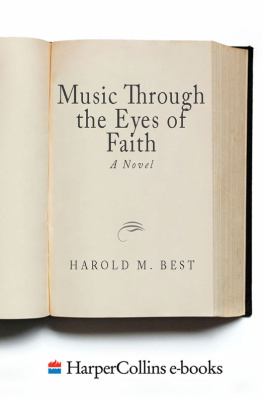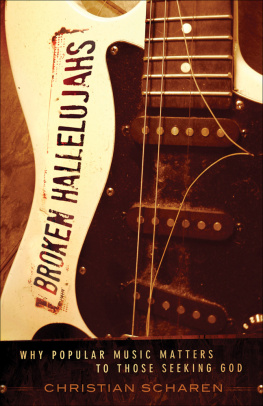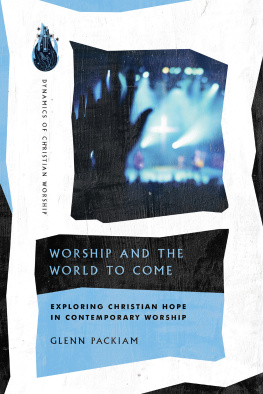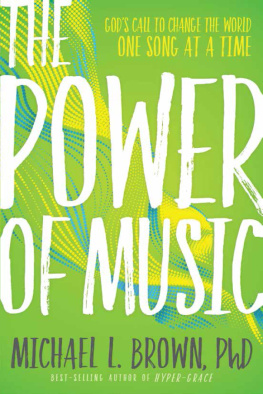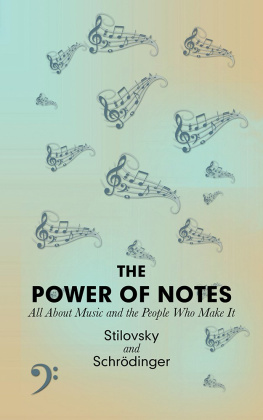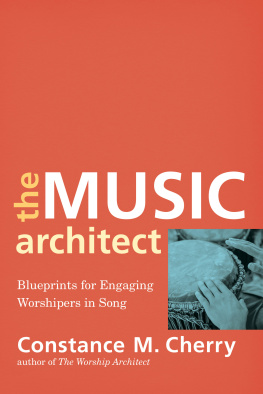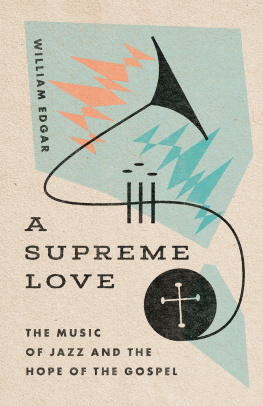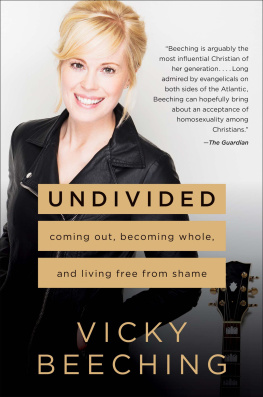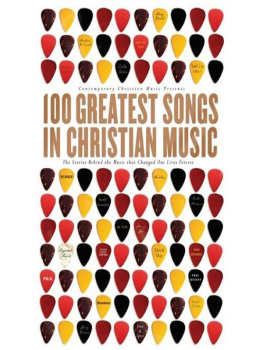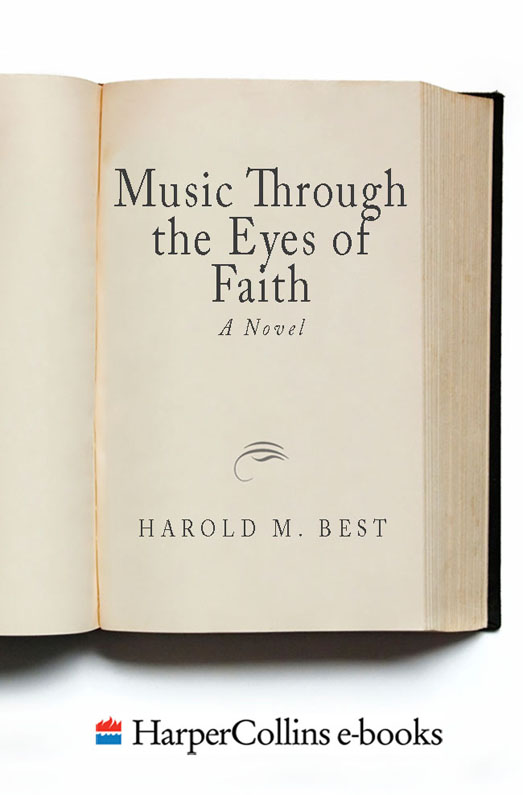CONTENTS
T his is a remarkable book. I can best communicate what is remarkable about it by simply quoting a few words from the introduction. The author, Harold M. Best, a professor of music widely known and honored in his profession, has just been talking autobiographically about the ways in which, for most of his life, his love for music of a wide variety of different sorts made for tension in his life. People around him and his own inner voice told him that most of what he liked was bad; commitment to quality in music requires the rejection of musical pluralism. He then says this:
... in these later years of my profession, I find myself laughing and whole again, musically happier than ever, celebrating this vast expanse of sonic creativity, longing with all my heart to be a world musician as a living part of being a world Christian, and delighting in teaching all of this renewed good news. I find myself wanting to dance through a Pentecost of musics, excited as never before, rejecting older, narrower, restrictive canons, continuing to embrace the musics they exclusively praised, while rejoining other musics I had for too long turned my back on.... Yet there is a significant amount of music that I simply cannot bring myself to enjoy, because even though I revel in diversity, I strive for personal excellence. In other words, I still make choices, and I truly believe that there is music of poor qualityfar too much of itright alongside the good music.
Those words give clear hints of what is remarkable in this book: A vivid style; a deep and wide knowledge of the field of music combined with a love of performance, an insistence on the importance of excellence combined with an extraordinary breadth of musical taste and a courageous celebration of humanitys music in all its diversity; a deep and unashamed piety combined with theological sophistication.
What Harold Best sees when he looks at music through the eyes of his deeply felt, reflective, and generous Christian faith is an extraordinarily rich and exciting panorama. He tackles the tough questions that come to mind when people of faith reflect on music; when hes not entirely satisfied with the answers he proposes, he tells us so. He strives for wholeness, integrity, between his life of faith and his life in music. But I predict that what will stay with the reader of this book longer than the memory of intellectual stimulation and longer than the memory of religious seriousness is the memory of celebration: a person of faith and learning celebrating great music in all its diversity.
Nicholas Wolterstorff
Yale University
MUSIC TASK FORCE MEMBERS
Anton Armstrong
St. Olaf College
Karen DeMol
Dordt College
Charlotte Kroeker
Whitworth College
Ken Medema
Brier Patch Music
Richard Stanislaw
King College
Paul Westermeyer
Luther Northwestern Theological Seminary
John Worst
Calvin College
SERIES ADVISORY BOARD MEMBERS
Nicholas Wolterstorff
Yale University
David Benner
Redeemer College
Richard Bube
Richard University
David Allen Hubbard
Fuller Theological Seminary
Karen Longman
Christian College Coalition
Ann Paton
Geneva College
Timothy Smith
Johns Hopkins University
Richard T. Wright
Gordon College
Pied Beauty
Glory be to God for dappled things
For skies of couple-colour as a brinded cow;
For rose-moles all in a stipple upon trout that swim;
Fresh-firecoal chestnut-falls; finches wings;
Landscape plotted and piecedfold, fallow, and plough;
And all trades, their gear and tackle and trim.
All things counter, original, spare, strange;
Whatever is fickle, freckled (who knows how?)
With swift, slow; sweet, sour; adazzle, dim;
He fathers-forth whose beauty is past change:
Praise him.
Gerard Manley Hopkins
Any tone can succeed any other tone, any tone can sound simultaneously with any other tone or tones, and any group of tones can be followed by any other group of tones, just as any degree of tension or nuance can occur in any medium under any kind of stress or duration. Successful projection will depend upon the contextual and formal conditions that prevail, and upon the skill and the soul of the composer.
Vincent Persichetti
Unless you... become like little children...
MATT. 18:3 (NIV)
When 1 became a man, I did away with childish things.
1 COR. 13:11 (NASB)
Let all the world in every corner sing: My God and King!
GEORGE HERBERT
I ask that you allow me to begin personally, partly to show that, even though I am a professional musician, my musical background was quite ordinary. It contained no spectacular people, no extraordinary mechanisms, no mystical events. It was just a part of growing up: a musical world indivisibly joined to a larger world. Give or take a few shifts of age and culture, it was a world not unlike yours, rooted in the everyday, the personal, and the real. And because things did not always go musically right for me; because there were real problems and eventual solutions, it might help if I let you in on them.
My father, a minister of the gospel, and my mother, a gentle, lovely woman, were amateur musicians whose childhood was likewise graced by amateur musicians. My fathers mother sang alto in a Lutheran church choir, and my mothers father played the cornet in the local municipal band. My mother played the piano and my father was a more-than-decent violinist, largely self-taught. They played in church and for friends, but mostly for each other. Hearing them make music together and singing to me were among my earliest musical memories.
I remember an upright piano in our living room on which I made the plinking and plunking music of little children. I remember a few violin lessons from my fatherbreaking my arm thankfully brought them to a closeand then my first piano lessons from my mother. In second grade in a small public school in Sharon, Pennsylvania, I learned how do, re, mi could be used to help me sing tunes. I also discovered that I could turn what I heard back into do, re, and mi. Sometime before I could read music very well, I was trying to make it up. I didnt know that this was called improvisationI just thought that this was one of the things you did with music. My next piano teacheran itinerant pedagogue, seventy-five cents a lesson, portly and straddle-legged beside me on the bench, awash in recent cigar smokewas the first of several teachers, as our family moved from one pastorate to another.
At home the music we listened to was classical music. My father did not find popular music acceptable. Even when I was an adult professional and he a senior citizen, he remained puzzled and uncomfortable over my enthusiasm for the many kinds of popular music that I had eagerly come to embrace. His love for Bach and Brahms and Beethoven and all organ music was so intense, so natural and unschooled, that I grew up assuming that this was a common part of common living. To this day, I remain deeply grateful for his values, exclusive as they were.
But still I got wind of popular music, on the radio and from my friends: semiclassical, popular ballads, the emerging style of boogie-woogie, and swing. I fell in love with this music, not even guessing that it could be separated out from Bach and Brahms and Beethoven. I also heard what we now call ethnic music, without any idea that it could be separated out into classes and hierarchies. I simply knew that I needed all of these kinds of music as much as I needed the classical music that my father had personally singled out. To me, it was all one enchanting world, each part merging with the rest.

